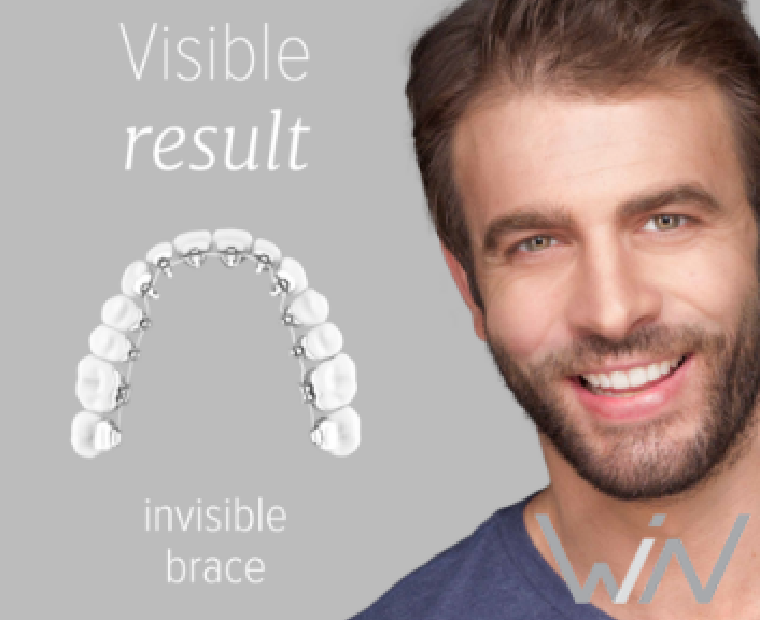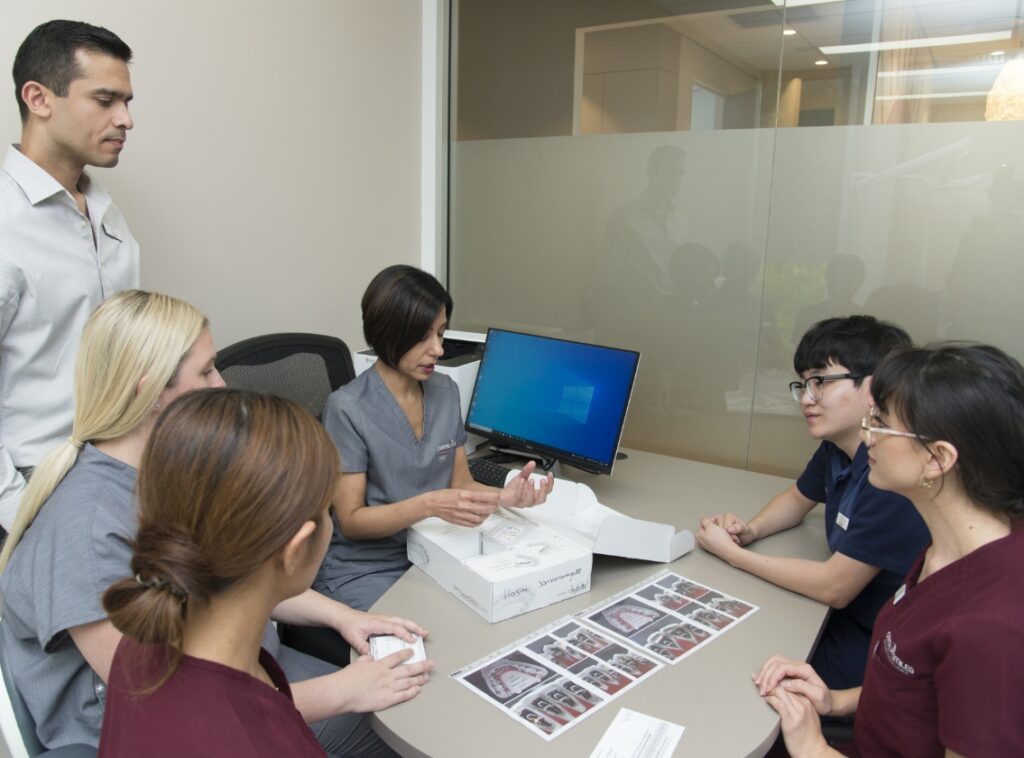Lingual Hidden Braces
Your Guide to Lingual Braces
More adults and teenagers are now seeking orthodontic treatment that is discreet and ideally, invisible.
Of these options, lingual braces, which are braces fitted BEHIND the teeth, are the only truly invisible way to move teeth precisely and with good control. These braces are suitable for all teenagers and adults who want to straighten their teeth, but do not want to be seen wearing braces.
Here at Capital Smiles, Dr Singh uses a completely customised lingual appliance; the WIN lingual brace system from DW Lingual Systems, Germany. This is a system that consistently produces the expected treatment results. Developed by a highly skilled and innovative team headed by Professor Dirk Wiechmann in Bad Essen, Germany, the advantages of WIN Lingual braces are as follows:

- Completely invisible.
- Precise and predictable treatment results based on a lab set-up of treatment outcome.
- Improved comfort: with each bracket and archwire custom-made and designed to perfectly adapt to an individual’s teeth.
- Suitable for simple and complex cases.
- Engineered and made in Germany with precision manufacturing.
Another advantage to having WIN lingual braces is that the damage which can sometimes occur due to poor tooth-brushing during orthodontic treatment tends to be less severe and less visible as compared to traditional braces that are fitted onto the front surfaces of teeth.

When lingual braces are first fitted, there is some discomfort associated with them. Initially, ulcers occur on the tongue due the rubbing of the tongue against the braces. These disappear and reduce with time as you adapt to your braces. WIN lingual braces are generally more comfortable and flatter than other lingual brace systems as they are well adapted to each tooth and are therefore not bulky. Orthodontic wax can be applied onto the braces to reduce the rubbing of the tongue against the braces during the initial adaptation period.
Speech can also be altered for a few weeks as the lingual braces encroach into the tongue space, and also because the tongue will be contacting the braces instead of the teeth whilst talking. As with traditional braces, there will be some pressure on the teeth as they are moving and this will necessitate a soft diet whilst the patient adapts to the pressure. After a week or two, the discomfort disappears, the ulcers reduce, and speech is very often back to normal.
Our orthodontist, Dr Jasprit Nirmal Singh, is currently the only orthodontist in the ANZ region to hold a Masters in Lingual Orthodontics from the University of Hannover in Germany.
To arrange for a consultation with our specialist orthodontist Dr Jasprit Singh, please call us on 02 6111 2946 or 0456 711 950.


